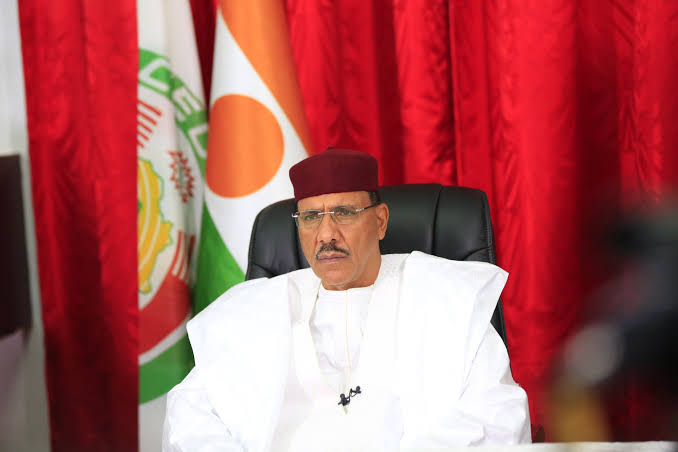The first thing public analysts and foreign governments want to talk about after coups is how they are bad and worse than the worst versions of democracy. But these talks are usually an escape from reality.
They avoid talking about what gave life to these illegal actions because it’s convenient to do so. Pray tell, how do you always want to talk about the actions while avoiding the triggers?
EDITOR’S PICKS
-
Neglected Infrastructure and Disrupted Services: The Alarming State Of Nigerian Government Properties
-
Niger: Coup Leaders Reveal Fresh Plan Against President Bazoum
The Republic of Niger military coup of July 26, 2023, which caused the ouster of President Mohamed Bazoum, was the latest opportunity for African and world leaders to condemn coups without talking about the triggers. It’s always a good thing to condemn coups, but not attacking the issues that give “credence” to them is dangerous and creates the risk of reoccurrence, as we’ve seen multiple times in the past.

Political corruption has long been a pervasive issue in many African countries, and its connection to coups is undeniable. It fosters an environment conducive to such destabilising actions.
Niger Republic represents the last of the three central Sahel states to succumb to a military coup, after Mali in 2020 and 2021, and two coups in Burkina Faso in 2022. These coups point to larger problems of political corruption and foreign interference, including anti-French sentiments in the region. These sentiments were recently on display when thousands of Nigeriens stormed the French Embassy in Niger to protest against the French government.
Despite the condemnation by the world and African leaders, including the Economic Community of West African States (ECOWAS), there have been cases of some citizens of the three countries publicly supporting the juntas.
These reactions echo those of Lagosians in the aftermath of the 1966 coup in Nigeria. Lagosians were seen going about their businesses the day after the coup like nothing happened. A foreign journalist remarked that the people lived like they were still under one of the most stable governments in Africa.
He interviewed Nigerian journalist Gabriel Fagbore who pointed to political corruption and nepotism as the drivers of the coup. The journalist noted that Prime Minister Tafawa Balewa’s weakness in controlling his ministers was partially responsible for the coup, adding that millions of Nigerians, including him, wouldn’t want the ousted leader to get his job back. That’s a striking statement.
It would not be surprising if Nigeriens shared the same sentiments about President Bazoum, who is still held hostage. When leaders fail to endear themselves to citizens by providing basic services such as education, healthcare, and infrastructure, they weaken their positions and lose public sympathy.
No doubt, the military takeover in Niger is a major drawback for democracy in the region and Africa as a whole. The military regimes of Guinea, Mali, and Burkina Faso already plan to form a “military alliance”, supposedly to combat insecurity.
However, history has shown that coups driven by corruption can have profound consequences for nations, often perpetuating cycles of instability and undermining the very goals they aim to achieve. Ask Nigerians who lived through military regimes. They don’t have rosy stories to tell because the public is usually the victim of political corruption and resultant effects like coups.
Therefore, it is not enough to simply discourage coups; it’s critical for African leaders to start attacking the root causes of coups. Addressing political corruption through transparent governance, strong institutions, and effective anti-corruption measures is crucial in breaking this cycle and promoting sustainable political stability in Africa.
FURTHER READING
-
Suspected Drug Baroness, 4 Kingpins Arrested As NDLEA Busts 3 Lagos Syndicates
-
Ex-Directors, Secretaries Of Tinubu-Shettima Campaign Directorates Form New Group
If African leaders fail to start taking the welfare of citizens seriously and stamping political corruption out of their governments, ECOWAS, the United Nations (UN), and others may have more coups to condemn in the future.
Philip Ibitoye writes for Eko Hot Blog. This media platform reserves all rights to this article.
Click to watch our video of the week:
Advertise or Publish a Story on EkoHot Blog:
Kindly contact us at [email protected]. Breaking stories should be sent to the above email and substantiated with pictorial evidence.
Citizen journalists will receive a token as data incentive.
Call or Whatsapp: 0803 561 7233, 0703 414 5611











![“We Are Tired Of S¥cking D**k”– UNICAL Students Protest Sexual Harassment, Call Out Dean Cyril Ndifon [Video]](https://ekohotblog.com/wp-content/uploads/2023/08/Collage-Maker-14-Aug-2023-05-35-PM-8237-768x432.jpg-75x75.webp)




